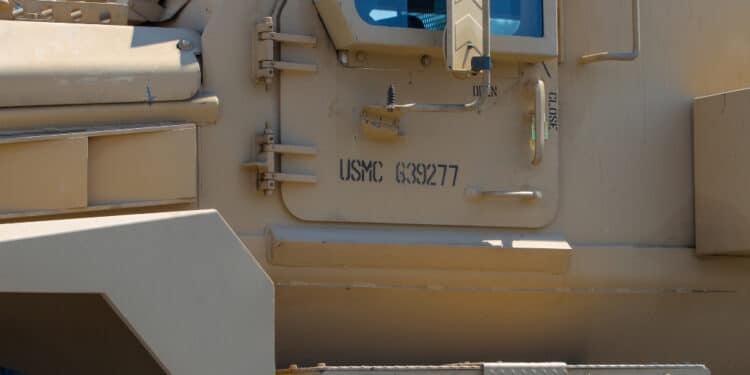Navistar Defense LLC (Navistar), a manufacturer of military vehicles, has agreed to pay the U.S. government $50 million to resolve allegations that Navistar used falsified documents to induce the U.S. Marine Corps to buy Navistar products at artificially inflated prices. The case was originally brought to the attention of the government by whistleblower Duquoin Burgess, a former Government Contracts Manager for Navistar, who filed a complaint under the qui tam provisions of the False Claims Act.
According to a U.S. Department of Justice (DOJ) press release, Navistar used fraudulent commercial sales invoices to artificially inflate the value of their product, a suspension system designed for Mine-Resistant Ambush Protected vehicles. The government alleges Navistar knowingly cooked up commercial sales that had never occurred to drive up the price of the product during contract negotiation. The DOJ report claims that the government relied heavily on these fake invoices in making their decision to accept the higher rates of the contract.
“Fraud is not a victimless crime,” said Special Agent in Charge Thomas Cannizzo of the Naval Criminal Investigative Service (NCIS), Southeast Field Office. “It steals money from American taxpayers, damages the integrity of the Department of the Navy procurement process, degrades the readiness of the services by compromising the quality of goods and services used to protect the nation, and squanders more money through the funding of criminal investigations which could have been avoided simply by individuals doing the right thing.”
The settlement resolves allegations made under the False Claims Act, the U.S.’s premier anti-corruption and whistleblowing law. Whistleblowers like Burgess are an essential part of the program; in 2020, over two-thirds of the total money the government recovered with the False Claims Act stemmed from whistleblower disclosures. Whistleblowers are incentivized to disclose insider information by a reward system that entitles them to 15 to 30% of the total money the government eventually recovers in a settlement. For his part in the case, Burgess will receive over $11 million of the total settlement. This case yet again demonstrates the efficacy of the False Claims Act in stopping fraud, even at high levels of military contracting.


